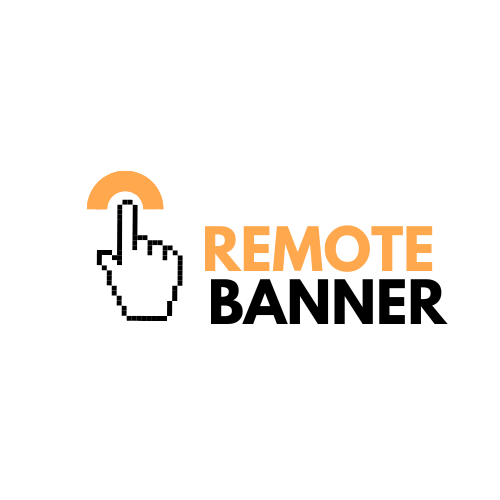
Top 10 Best Digital Marketing Software to Boost Your Business in 2023
Key Takeaways
- Importance of Digital Marketing Software: Effective digital marketing tools are essential for businesses to stand out in a competitive landscape, helping streamline strategies and maximize results.
- Types of Tools: Key categories of digital marketing software include social media management, email marketing solutions, SEO tools, content management systems (CMS), and analytics software, each serving specific marketing purposes.
- Efficiency and Automation: These tools enhance productivity by automating repetitive tasks, which allows marketers to focus on more strategic initiatives.
- Data-Driven Insights: Access to real-time analytics and reporting helps businesses make informed decisions, optimizing marketing effectiveness and improving audience targeting.
- Collaboration and Integration: Many digital marketing tools offer features that promote teamwork and can integrate seamlessly with existing systems, enhancing workflow and data consistency.
- Key Features to Evaluate: When selecting software, prioritize functionalities such as robust analytics, automation capabilities, and integration options to align with specific business goals.
In today’s fast-paced digital landscape, effective marketing is more crucial than ever. Businesses of all sizes face the challenge of standing out amidst fierce competition. The right digital marketing software can be a game-changer, streamlining efforts and maximizing results.
From social media management to SEO optimization, these tools empower marketers to reach their target audiences efficiently. They not only save time but also provide valuable insights that drive strategic decisions. As companies continue to embrace digital transformation, identifying the best software options becomes essential for success.
Best Digital Marketing Software
Digital marketing software encompasses a range of tools designed to facilitate and optimize online marketing efforts. These tools streamline various marketing processes, enhance engagement, and provide insights into performance metrics. Utilization of digital marketing software enables businesses to reach target audiences effectively and efficiently.
Types Of Digital Marketing Software
- Social Media Management Tools
Social media management tools enable scheduling, publishing, and tracking of content across multiple platforms. Examples include Hootsuite and Buffer.
- Email Marketing Solutions
Email marketing solutions assist in creating, sending, and analyzing email campaigns. Popular options include Mailchimp and Constant Contact.
- Search Engine Optimization (SEO) Tools
SEO tools provide keyword research, site audit, and backlink analysis functionalities. Notable examples include SEMrush and Ahrefs.
- Content Management Systems (CMS)
CMS platforms help manage digital content and streamline website updates. Examples include WordPress and Wix.
- Analytics and Reporting Software
Analytics software tracks website performance and user behavior, offering insights for strategic decisions. Google Analytics stands out as a widely used option.

- Increased Efficiency
Digital marketing software automates repetitive tasks, allowing marketers to focus on strategy.
- Data-Driven Insights
Access to real-time data helps businesses make informed decisions, improving marketing effectiveness.
- Enhanced Collaboration
Many tools offer collaborative functions, enabling teams to work together seamlessly on projects.
- Cost-Effective Solutions
Many digital marketing tools provide scalable options for businesses, ensuring cost-effectiveness as needs evolve.
- Targeted Marketing Efforts
These software solutions enable precise audience targeting, improving conversion rates and customer engagement.
Selecting suitable digital marketing software based on specific business needs and goals is crucial for maximizing the impact of marketing initiatives. Investing in these tools enhances overall marketing strategy, leading to increased visibility and success in the digital landscape.
Key Features To Look For
When selecting digital marketing software, identifying key features ensures alignment with business objectives. Essential characteristics enhance marketing efficiency and effectiveness.
Analytics and Reporting
Effective analytics and reporting features provide insights into marketing performance. Look for tools that offer real-time data tracking, user behavior analysis, and customizable dashboards. These functionalities allow marketers to measure campaign successes, understand audience engagement, and refine strategies based on quantitative data. Advanced reporting features facilitate in-depth analyses, including ROI calculations and conversion tracking, which support data-driven decision-making.
Automation Capabilities
Automation capabilities streamline repetitive tasks, thus increasing productivity. Choose software that automates email marketing campaigns, social media postings, and customer segmentation. Automating these processes reduces the risk of human error and saves time, allowing marketers to focus on strategy and creativity. Look for features that enable trigger-based actions, such as sending follow-up emails after a user engages with content, enhancing overall customer experience.
Integration Options
Integration options enhance a software’s versatility and functionality. Opt for platforms that seamlessly connect with existing tools such as CRM systems, e-commerce solutions, and content management systems. Effective integration facilitates data consistency across platforms, improves workflow efficiency, and enables a unified approach to marketing strategies. Compatibility with API and third-party applications allows for expanded capabilities without sacrificing performance.
Top Digital Marketing Software
Digital marketing software enhances online marketing efforts by streamlining processes, providing insights, and improving engagement. Below are three notable software options in the digital marketing landscape.

Software 1: HubSpot
HubSpot offers an all-in-one marketing platform that integrates CRM, email marketing, social media management, and analytics. Key features include:
- CRM Integration: Centralizes customer data, enhancing personalization efforts.
- Email Automation: Streamlines email campaigns through automated workflows and personalized messaging.
- SEO Tools: Optimizes content creation with built-in SEO recommendations.
Software 2: SEMrush
SEMrush is a comprehensive SEO tool that assists in keyword research, competitive analysis, and site audits. Key features include:
- Keyword Research: Identifies high-traffic keywords for improved visibility.
- Site Audit: Analyzes website performance and highlights areas for improvement.
- Backlink Analysis: Assesses backlink profiles to enhance link-building strategies.
- Post Scheduling: Automates posting schedules for optimal engagement times.
- Analytics Dashboard: Tracks performance metrics to refine social strategy.
- Team Collaboration: Facilitates teamwork by allowing multiple user access and task assignments.
User Experience and Support
User experience and support play vital roles in the effectiveness of digital marketing software. Seamless interactions and robust customer assistance enhance users’ ability to utilize tools effectively.
Customer Support Options
Customer support options vary significantly among digital marketing software providers. Some offer 24/7 live chat support, ensuring immediate assistance for urgent issues. Others may provide email support with defined response times, which can lead to longer wait periods. Comprehensive knowledge bases and community forums often supplement these support systems, enabling users to find solutions independently. Additionally, personalized onboarding sessions and live training can enhance user adaptation and understanding of software capabilities.
User Reviews and Testimonials
User reviews and testimonials provide insights into the reliability and effectiveness of digital marketing software. Positive reviews frequently highlight user-friendly interfaces, responsive customer service, and continuous feature updates. Negative feedback may focus on limitations or specific challenges encountered in particular use cases. Analyzing aggregated ratings on reputable review platforms like G2 or Capterra can guide potential users in their decision-making process. These real-world experiences help assess how well the software aligns with business needs and expectations.
Right Software Can Make All The Difference
Choosing the right digital marketing software is crucial for any business aiming to thrive in the digital landscape. By leveraging the right tools, companies can streamline their marketing efforts and gain valuable insights that drive strategic decisions. Whether it’s enhancing social media presence or optimizing SEO strategies, the right software can make all the difference.
Investing time in understanding specific needs and exploring available options will lead to better results. As the digital marketing landscape continues to evolve, staying ahead with the best software ensures businesses remain competitive and effectively engage their target audiences.



